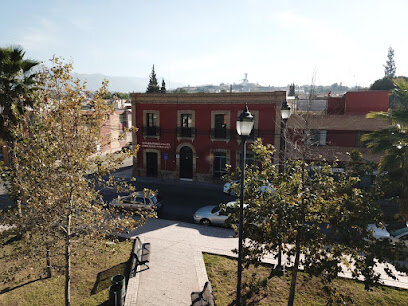Best Marriage Lawyers in Saltillo
Share your needs with us, get contacted by law firms.
Free. Takes 2 min.
Free Guide to Hiring a Family Lawyer
List of the best lawyers in Saltillo, Mexico
About Marriage Law in Saltillo, Mexico
Marriage in Saltillo, Mexico, as in other parts of the country, is a legal institution governed by both federal and state laws. In Saltillo, which is located in the state of Coahuila, the marriage laws are designed to protect the rights of both parties entering into matrimony. Understanding these laws is crucial for anyone planning to marry in Saltillo, as they outline the legal requirements, rights, and responsibilities of spouses.
Why You May Need a Lawyer
There are several situations where you may require legal help regarding marriage in Saltillo, Mexico. These include:
- Understanding the legal requirements and procedures for getting married.
- Drafting prenuptial agreements to protect personal and financial interests.
- Dealing with issues related to marriage annulment or divorce.
- Handling matters of child custody and support in cases of separation.
- Resolving disputes related to property division upon dissolution of marriage.
- Addressing legal implications of international marriages.
- Navigating the Mexican family law system if you are a foreigner marrying a local.
Local Laws Overview
Here are some key aspects of the local laws relevant to marriage in Saltillo, Mexico:
- Legal Age: The legal age for marriage without parental consent in Coahuila is 18 for both men and women. With parental consent, individuals can marry as young as 16.
- Civil Marriage: Mexico recognizes only civil marriages as legally valid, though religious ceremonies can be performed and are often culturally significant.
- Marriage License: Prospective spouses must apply for a marriage license and provide necessary documentation such as birth certificates, IDs, and a certificate of no impediment to marriage.
- Witnesses: Two witnesses are required for the marriage ceremony, and they must provide valid identification.
- Property Regime: Couples can choose between a communal property system or a separation of property system, which determines how assets and debts are handled during and after the marriage.
- Dissolution of Marriage: Divorce and annulment procedures are available, with specific grounds and processes defined by law.
Frequently Asked Questions
1. What are the requirements to get married in Saltillo, Mexico?
To get married in Saltillo, you need to be of legal age, provide necessary documentation (such as birth certificates, IDs, and a certificate of no impediment to marriage), and apply for a marriage license from the local civil registry office.
2. Is a religious wedding ceremony legally binding in Saltillo, Mexico?
No, only civil marriage ceremonies are legally recognized in Mexico. Religious ceremonies can be conducted, but they do not have legal standing without a prior civil marriage.
3. Can foreigners get married in Saltillo?
Yes, foreigners can get married in Saltillo. They must meet the same requirements as Mexican citizens and may need to provide additional documentation, such as a valid passport and a tourist visa.
4. What is a prenuptial agreement, and do I need one?
A prenuptial agreement is a legal document that outlines the division of assets and responsibilities in the event of divorce or death. It is not mandatory but can be useful for protecting personal and financial interests.
5. How can I obtain a copy of my marriage certificate?
You can request a copy of your marriage certificate from the civil registry office where your marriage was registered. You may need to provide identification and pay a small fee.
6. What are the grounds for divorce in Saltillo, Mexico?
Grounds for divorce in Saltillo can include mutual consent, incompatibility, infidelity, domestic violence, and abandonment, among others.
7. How is property divided in a divorce?
Property division depends on the chosen property regime (communal property or separation of property). Communal property is divided equally, while separation of property allows each spouse to retain their pre-marital and individually acquired assets.
8. What happens to children after a divorce?
Child custody and support decisions are made based on the best interests of the child. Courts consider factors such as the child's needs, parental abilities, and the child's preference, if they are of suitable age and maturity.
9. Can same-sex couples marry in Saltillo, Mexico?
Yes, same-sex marriage is legal in Coahuila, including Saltillo. Same-sex couples have the same legal rights and obligations as opposite-sex couples.
10. What if my spouse is not a Mexican citizen?
If one spouse is not a Mexican citizen, the marriage is still legally recognized in Mexico. However, additional steps may be required for immigration purposes or to have the marriage recognized in the foreign spouse's home country.
Additional Resources
Here are some useful resources and organizations for those seeking legal advice on marriage in Saltillo, Mexico:
- Registro Civil de Coahuila: The local civil registry office where you can apply for marriage licenses and obtain marriage certificates.
- Local Family Law Attorneys: Legal professionals specializing in family and marriage law can provide personalized advice and representation.
- Consulate or Embassy: If you are a foreigner, your home country's consulate or embassy can provide guidance on marriage laws and necessary documentation.
- Instituto Nacional de las Mujeres (INMUJERES): This governmental body provides resources and support on various family and marriage-related issues.
Next Steps
If you need legal assistance with marriage-related matters in Saltillo, Mexico, here are some steps you can take:
- Research and identify experienced family law attorneys in Saltillo who can provide guidance on your specific situation.
- Schedule consultations with potential lawyers to discuss your needs, ask questions, and understand how they can assist you.
- Gather all necessary documentation and information relevant to your case, such as identification, birth certificates, and previous legal agreements.
- Follow through with the legal procedures advised by your attorney, whether it's applying for a marriage license, drafting a prenuptial agreement, or initiating divorce proceedings.
- Stay informed about your rights and responsibilities under local marriage laws to ensure a smooth legal process.
Lawzana helps you find the best lawyers and law firms in Saltillo through a curated and pre-screened list of qualified legal professionals. Our platform offers rankings and detailed profiles of attorneys and law firms, allowing you to compare based on practice areas, including Marriage, experience, and client feedback.
Each profile includes a description of the firm's areas of practice, client reviews, team members and partners, year of establishment, spoken languages, office locations, contact information, social media presence, and any published articles or resources. Most firms on our platform speak English and are experienced in both local and international legal matters.
Get a quote from top-rated law firms in Saltillo, Mexico — quickly, securely, and without unnecessary hassle.
Disclaimer:
The information provided on this page is for general informational purposes only and does not constitute legal advice. While we strive to ensure the accuracy and relevance of the content, legal information may change over time, and interpretations of the law can vary. You should always consult with a qualified legal professional for advice specific to your situation.
We disclaim all liability for actions taken or not taken based on the content of this page. If you believe any information is incorrect or outdated, please contact us, and we will review and update it where appropriate.










